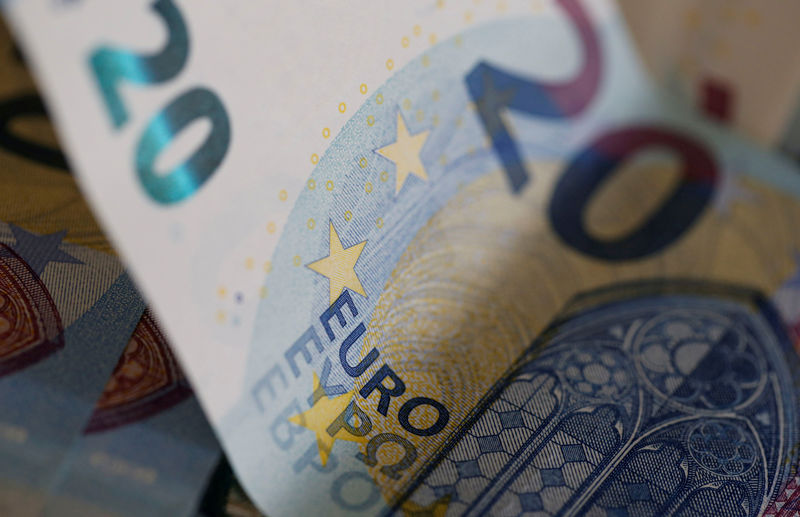By Dhara Ranasinghe
LONDON (Reuters) - Borrowing costs in the euro area fell on Friday as weak data from the euro zone and China fanned worries about global growth, a day after the ECB said downside economic risks were becoming more prominent.
The "flash" euro zone purchasing managers' index of business activity in the bloc, slumped to 51.3 in December, its weakest since November 2014. That was down from a final November reading of 52.7, well below even the most pessimistic forecast in a Reuters poll.
The weak figures come a day after the European Central Bank decided to end its massive asset-buying scheme but kept policy broadly unchanged, promising protracted stimulus for an economy struggling with an unexpected slowdown and political turmoil.
"The growth concerns are back - the French PMIs were effected by the demonstrations but all across the euro zone the PMIs were weaker than expected," said Alexander Aldinger, rates strategist at Bayerische Landesbank.
"The market's reading is that the ECB will not be able to hike rates next year if the outlook deteriorates further - especially with China/U.S. trade tensions and Brexit worries in the background."
Germany's 10-year Bund yield fell 3.5 basis points to 0.25 percent (DE10YT=RR) - keeping recent six-month lows in sight. Other 10-year bond yields in the bloc were down a similar amount (FR10YT=RR) (BE10YT=RR).
Investors are increasingly sceptical about the potential for an ECB rate hike in 2019, money market futures suggested.
The difference between the overnight bank-to-bank interest rate for the euro zone (Eonia) and forward Eonia rates dated for the ECB's December 2019 meeting was at 6 basis points, down from around 7.5 bps on Thursday.
That indicates investors price in roughly a 60 percent chance of a 10 basis point rise in the ECB's deposit rate - the minimum it is likely to increase - for next year. The deposit rate is currently at minus 0.4 percent.
Growth in Germany, Europe's biggest economy, will slow in the coming years, the Bundesbank said on Friday, cutting its forecasts.
CHINA PAIN
China's November retail sales grew at the weakest pace since 2003 and industrial output rose by the least in nearly three years as domestic demand softened further, underlining rising risks from world trade tensions.
The China data, together with renewed concern about Brexit, weighed on world stock markets, lifting appetite for fixed income.
"The overnight news in China and taking a look at stocks, sheds light on the move in bonds," said Martin van Vliet, senior rates strategist at ING. "As far as the ECB is concerned, it was clear there was a dovish bias to the press conference."
In Italy, where the bond market has received a strong boost this week from a decision by Rome to cut its 2019 budget deficit forecast, easing tensions with the European Union, yields were also lower.

The Italian/German 10-year bond yield gap has tightened 16 bps this week, set for the biggest weekly tightening in six weeks.